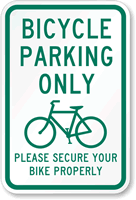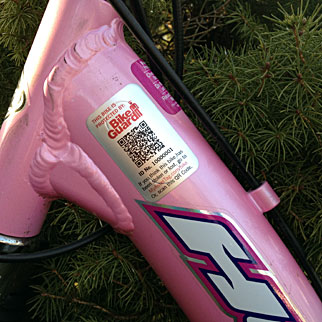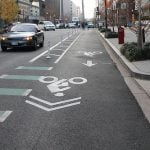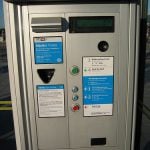Rising bike theft prompts police stings and a free registry
Thousands of bikes and bike parts get stolen in the U.S. every year (image used under Creative Commons via Flowizm).
Earlier this month, the Bay Area Rapid Transit Police (BART) commenced a sting operation in San Francisco that led to the arrest of a bike thief. The thief had in his possession over ten bikes and more than 100 bike parts. This success story is a nice follow-up to the July 2012 San Francisco Police Department’s arrest of a thief who had 114 stolen bikes stowed in a storage locker.
BART police ramped up efforts to catch bicycle thieves back in April 2011 after the number of reported bicycle thefts throughout the transit system rose sharply. In a recent study, Streetsblog, a daily transportation news source, reported that bike theft is up 25 percent in New York. Likewise, Transportation Alternatives, a bicycle advocacy group in New York City, has estimated that upwards of a million bikes get lifted annually, costing owners around $10 million.
A proper bike lock can decrease the chances of having your bike stolen (via myparkingsign.com).
That’s a lot of stolen bikes. Even though stealing a bike is regarded as a misdemeanor, police departments are hesitant to pull officers from pursuing more violent criminals to hunt bike thieves. Unlike the BART operation this month and the SFPD’s find last year, stories of successful bike theft crackdowns are rare.
“It’s just a low priority, to be honest with you,” says Sergeant Joe McCloskey, a bike-theft specialist with the San Francisco police department who estimates that, of the scores of bicycle thieves he has caught, not one did jail time for the crime.
A recent Department of Justice report on bike theft tried to explain why police are mostly helpless in these situations. One main reason is that proof of ownership is often lacking. This means that even if you report your stolen bike to the police, and even if the police recover it, and even if they find the person who stole it, the suspect will be released if you didn’t register the bike or keep your receipt.
Asset tags provided by BikeGuard identify bikes with a unique ID number .
As a result of this most recent sting operation, BART police have taken pictures of the recovered bikes and bike parts and posted them online in the hopes that they will be claimed and returned to their rightful owners. This tedious and time consuming effort could have been made less burdensome for the police and the bike holders if all the bikes had been registered.
You can register your bike with the National Bike Registry or for free with BikeGuard. By registering, you create a unique ID page and are issued corresponding asset tags (made to be difficult to remove) to place on various parts of your bike. Should your bike go missing, it goes missing along with these tags that bear the bike’s unique ID. The scan of a smartphone will identify it as yours.
These easy-to-use asset tags are extremely important in helping police officers identify missing bikes and matching them with their owners. U.S. Police might even begin to prioritize bike theft knowing that proof of ownership would be less of a problem.
If every bike-owner had an asset tag, it would certainly make BART’s recovery mission that much easier.
-Nicola Segal
Related Posts
Category: News



















